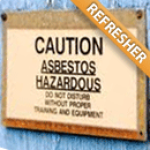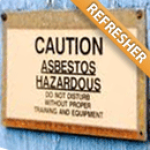The work of an asbestos building inspector involves identifying, assessing, and managing ACMs in buildings. Asbestos building inspectors play a crucial role in safeguarding the health of building occupants, construction workers, and maintenance personnel. To maintain their proficiency and stay updated on regulatory changes and best practices, asbestos building inspectors must undergo regular refresher training.
The Asbestos Building Inspector Refresher course is designed to provide inspectors with the latest knowledge and techniques necessary to effectively identify and manage asbestos in buildings. These refresher courses typically cover a range of topics, including asbestos regulations, health effects, sampling techniques, and management strategies.
One of the primary focuses of the refresher course is to update inspectors on changes to asbestos regulations and guidelines. Regulatory requirements surrounding asbestos management are constantly evolving, and it is essential for inspectors to stay informed about these changes to ensure compliance and protect public health. By staying up-to-date on regulations, inspectors can help building owners and managers navigate the complex requirements of asbestos management more effectively.
Health effects associated with asbestos exposure are another crucial aspect covered in refresher courses. Inspectors learn about the latest research findings regarding the health risks of asbestos exposure and how to communicate these risks to building occupants and stakeholders effectively. Understanding the health effects of asbestos exposure is essential for inspectors to convey the importance of proper asbestos management practices to building owners and occupants.
Sampling techniques are another key component of the refresher course curriculum. Asbestos building inspectors must know how to collect samples properly and analyze them for the presence of asbestos fibers. The refresher course provides hands-on training in sampling techniques, ensuring that inspectors are proficient in collecting accurate samples while minimizing their own exposure to asbestos.
In addition to sampling techniques, inspectors learn about the latest advances in asbestos management strategies. This includes information on asbestos abatement methods, encapsulation techniques, and ongoing monitoring practices. By staying informed about the latest asbestos management strategies, inspectors can provide valuable guidance to building owners and managers on how to effectively mitigate asbestos risks.
Ultimately, the goal of the Asbestos Building Inspector Training course is to equip inspectors with the knowledge and skills they need to protect public health and ensure regulatory compliance. By staying informed about changes in regulations, understanding the health effects of asbestos exposure, and mastering sampling and management techniques, inspectors play a vital role in creating safer environments for building occupants and workers.






Comments